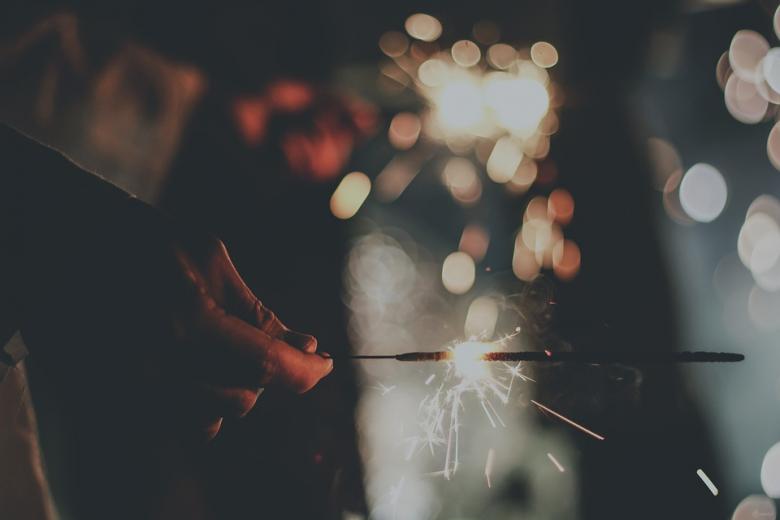Bonfire and Firework Safety

At Bonfire Night (5th November), we encourage you to celebrate safely at an organised event.
However, if you decide to do something at home, these tips are to help you think about and prepare for a fun and safe celebration.
Plan ahead:
- Fireworks must be stored safely, in a closed box, somewhere cool and dry, out of reach of children and animals, until the time they are needed. Don’t keep the box under the stairs or in a passageway.
- Do you have a large enough space to let fireworks off safely? Each firework should have a minimum safety distance marked on it.
- Be considerate to your neighbours: warn them beforehand so they can take in their washing, close windows, keep their pets indoors and, if necessary, take other precautions. Why not invite them?
- Only buy fireworks from reputable dealers. The fireworks should have the product safety marking BS7114 or equivalent and carry a CE mark.
- Most shops have only been given permission to sell fireworks on or between these dates: 15 October to 10 November, 26 to 31 December, 3 days before Diwali and Chinese New Year. To buy fireworks at other times, you must go to specially licensed shops.
- Fireworks cannot be let off between 11pm and 7am except on: Bonfire Night (5 November), when the cut off is midnight; New Year’s Eve, Diwali and Chinese New Year, when the cut off is 1am.
Checklist:
- Fireworks must only be handled and lit by responsible adults.
- Alcohol and fire don’t mix – nor do alcohol and fireworks.
- Keep fireworks in a closed box well away from the bonfire or any other sources of heat or fire.
- Follow the instructions on each firework. Different fireworks can present different hazards and so the instructions vary.
- Use a torch if you read the instructions in the dark – do not use a naked flame.
- Let fireworks off one at a time.
- Do not throw fireworks – it is highly dangerous.
- Light them at arm’s length, using a taper.
- Never play with fireworks – they are explosives and can hurt you.
- When you are watching fireworks, stand well back.
- Never go near a firework that has been lit. Even if it hasn’t gone off, it could still explode.
- Hold sparklers one at a time in gloved hands at arm’s length. When the sparkler goes out, it is still very hot so put it end down in a bucket of water.
- Never leave matches or lighters lying around
- The Office for Product Safety & Standards (OPSS) has produced safety tips on how to use fireworks responsibly and protect people and animals from harm. You can find these on the government website
People are injured by fireworks and admitted to hospital with children particularly at risk. Between 2014 –19 there were more than 1,000 severe burn injuries involving fireworks in England and Wales, with 38 per cent of these in youngsters under 15 years of age and the majority 67 per cent sustained by males.
We recommend that you do not use sky lanterns as you have no control over them once they’ve been set off. They can kill animals, litter the countryside and start fires. If you do choose to set them off, always follow the manufacturers’ guidance/instructions carefully.
Clearing up:
- Pick up the spent firework cases – they can still be dangerous. Look for fireworks with a torch. Use tongs or some other suitable tool and wear heatproof gloves.
- Don’t allow children to collect firework cases.
- If any firework looks as if it hasn’t gone off after at least half an hour, soak it in water to prevent it reigniting.
Having a bonfire or beacon
- A bonfire or beacon are great ways to celebrate Bonfire Night and other events, but do follow these safety tips:
- You can’t get rid of household waste on the bonfire if it will cause pollution or harm people’s health. You should always burn dry material as it produces less smoke. Never burn treated wood, rubber, plastic, foam or paint.
- Warn your neighbours beforehand so they can take in any washing, close windows, keep pets indoors and take other necessary precautions.
- Build your bonfire well clear of buildings, roads, garden sheds, fences, trees and hedges and, if possible, choose somewhere sheltered from wind to minimise the risk of the bonfire being blown out of control or of smoke restricting the vision of road users.
- Check there are no cables – like telephone wires – above the bonfire.
- Before you light the bonfire, check whether any pets, wildlife or small children have crawled inside.
- Always keep a bucket of water or a working hosepipe nearby in case of fire.
- Never use flammable liquids to start a bonfire and never throw on fireworks or burn dangerous items such as aerosol cans, paint tins, foam furniture or batteries.
- Don’t leave bonfires unattended and keep children and pets away. A responsible adult should supervise the bonfire until it has burnt out.
- Once the bonfire has died down, pour water on the embers to stop it reigniting.
Further guidance
If you are running an event these require more planning and organisation. Please see our Organising an event page
Both the Health and Safety Executive and the Department for Business, Innovation and Skills have produced helpful guidance on how to organise and run a safe and successful firework display, some of which may be useful for smaller events.
The Royal Society for the Prevention of Accidents has created a website with firework safety tips.
Guidance on fireworks law can be found here
Guidance on bonfire rules can be found here
Guidance on using sky lanterns safely can be found here
Firework safety advice from CAPT here
News
Campaign Events
There are currently no upcoming events for this station




